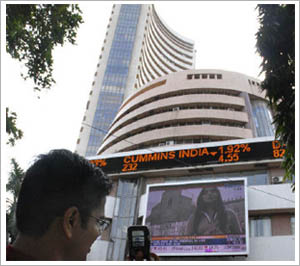World Market Review By Nirmal Bang
 Asian stocks fell, led by companies reliant on exports, after an unexpected drop in Chicago business activity raised concern the U. S. economic recovery will falter.
Asian stocks fell, led by companies reliant on exports, after an unexpected drop in Chicago business activity raised concern the U. S. economic recovery will falter.
The U. S. recovery may be slow to develop as a gauge of business activity dropped unexpectedly and a private report showed employers cut more jobs than forecast in September. The Institute for Supply Management? Chicago Inc. said today its business barometer decreased to 46.1, lower than the most pessimistic forecast, from 50 in August. Readings below 50 signal a contraction. Companies cut payrolls by 254,000 jobs in September, according to ADP Employer Services.
Former Federal Reserve Chairman Alan Greenspan said he sees the U. S. economy slowing next year as the surge in stocks comes to an end. "The odds are that we flatten out, even though earnings are doing very well," Greenspan said in an interview with Bloomberg Television, referring to the equity market. That flattening out will probably "put some sort of dull face" on the economy in 2010, he added.
Japanese companies plan to deepen investment cuts as profits slump, inhibiting the recovery from the nation's worst postwar recession, the central bank's Tankan survey showed. Large businesses aim to cut spending 10.8 percent this year, more than the 9.4 percent planned three months ago, the central bank said in Tokyo today. Britain's Labour government plans to halve the national deficit through spending cuts and asset sales worth 75 billion pounds ($120 billion), without resorting to raising taxes, the Times newspaper reported.
At a time when equity markets are celebrating a return to business as usual, the latest Global Financial Stability Report by the International Monetary Fund, or IMF, sounds a note of caution. The report says that the sustained rallies in emerging market equity and external debt markets since early spring are only partly the result of improving fundamentals. "Our Emerging Market Bond Index Global spreads model indicates that the decline in sovereign debt spreads has been driven almost entirely by improved global risk appetite and core market liquidity," it says.